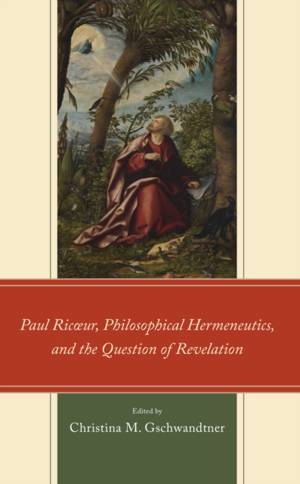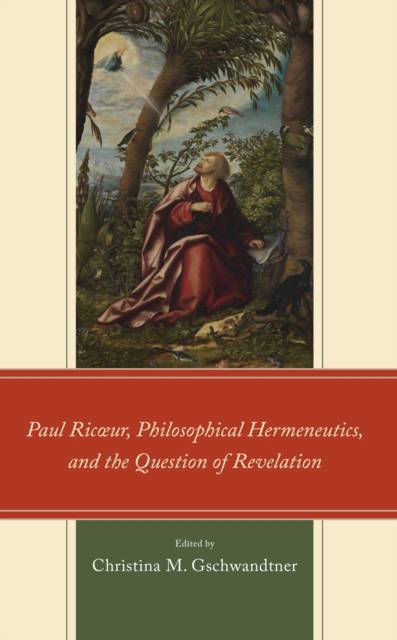
- Retrait gratuit dans votre magasin Club
- 7.000.000 titres dans notre catalogue
- Payer en toute sécurité
- Toujours un magasin près de chez vous
- Retrait gratuit dans votre magasin Club
- 7.000.000 titres dans notre catalogue
- Payer en toute sécurité
- Toujours un magasin près de chez vous
Paul Ricur, Philosophical Hermeneutics, and the Question of Revelation
Description
The topic of revelation is fundamental to any account of religious experience, playing a special role in the Judeo-Christian tradition where the texts of Scripture are regarded as revealed. Yet, any reflection on the revealed status of a given message or text requires interpretation. Paul Ricoeur, one of the most important hermeneutic philosophers of the twentieth century, provides crucial insights on how such interpretation might proceed and what it might mean for texts to be revealed. Edited by Christina M. Gschwandtner, Paul Ricoeur, Philosophical Hermeneutics, and the Question of Revelation brings together major scholars of Ricoeur's work on the topic of revelation, showing both the role it already plays in his work and how his thinking might be taken further. Several contributors trace the development of his thought in regard to the concept of revelation. Others discuss the revelatory dimensions of Ricoeur's hermeneutics of the self, especially for such issues as identity, trauma, and forgiveness. Several contributions also place his work in conversation with that of other seminal thinkers on the topic of revelation, such as Karl Barth and Paul Tillich.
Spécifications
Parties prenantes
- Editeur:
Contenu
- Nombre de pages :
- 302
- Langue:
- Anglais
- Collection :
Caractéristiques
- EAN:
- 9781666937282
- Date de parution :
- 08-01-24
- Format:
- Livre relié
- Format numérique:
- Genaaid
- Dimensions :
- 152 mm x 229 mm
- Poids :
- 585 g






